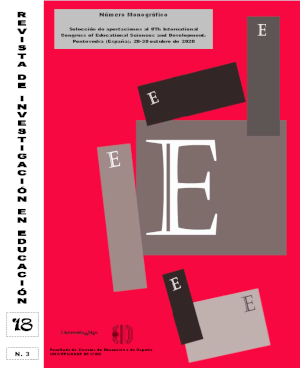Cognitive Learning Strategies and Study Control Strategies and their relationship with academic performance in Psychology students at the University of La Laguna
DOI:
https://doi.org/10.35869/reined.v18i3.3269Keywords:
Strategies, Control, Learning, Performance.Abstract
Based on previous studies about factors that influence at university academic performance, we present as an object of this research, a study of the relationship between cognitive learning strategies and study control with the academic performance of the university population. A descriptive experimental study has been carried out with 764 students belonging to groups of 3rd year of Psychology from 2013 to 2019, through the Cognitive Learning Strategies (ECA) and Control Strategies in the Study (ECE) tests, including academic performance. A mean difference Student's t-test was carried out for independent groups according to their academic grades, in consequence creating a group called LowR (33% of students with scores below 6 out of 10) versus HighR (33% of students with scores higher than 7.5 out of 10). The results show that the students with better performance use more strategies of structuring and elaboration of the content and mnemonics. However, the worst-performing students use receptive learning (learning the content as it appears), mechanical-superficial learning (without understanding) and repetitive learning as strategies. At the same time, the best performing students use more study control strategies than the worst-performing students, finding significant differences in strategies such as revision, planning, search for alternatives, time control, relearning, detailing tasks, controlling external variables and resort to personal support for the study. These results show us the need to assess the improvement of university academic performance through the application of optimal learning strategies and adequate study control techniques.
Downloads
Downloads
Published
Issue
Section
License
The acceptance of the papers for publication, means that the printing and reproduction rights are owned by the journal. The conditions of use and reuse of content are those established in the Creative Commons CC BY-NC-ND 4.0 license.



